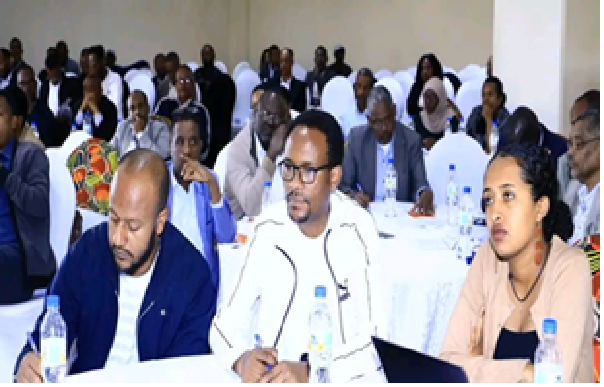Strengthening Justice Sector Reform for Rights and Inclusion

Objectives
The main problems faced by the criminal justice sector are:
-
Lack of coordination amongst criminal justice institutions at the Federal and Regional levels.
-
Lack of human and institutional capacity within key criminal justice institutions to perform their roles and functions in compliance with existing and new legislation and policy.
-
Lack of accountability and compliance with the rights of all users of the criminal justice system.
-
Insufficient access to justice and legal aid and assistance for arrested, detained and accused persons and victims and witnesses.
The programme aims to:
-
Enhance horizontal and vertical coordination, collaboration and cooperation between key criminal justice institutions.
-
Increase effectiveness, efficiency, fairness and accountability of the criminal justice system.
-
Improve access to justice for all, in particular the poor, women and other groups in vulnerable situations.
-
The programme’s key areas of intervention are:
-
Grant to the Federal Ministry of Justice
-
Grant to the Federal Supreme Court of Ethiopia
-
Grant to the Ethiopian Human Rights Commission
-
Grant to UNODC to support legal aid providers
-
Technical Assistance Unit (GIZ) to support all the program
Activities
-
Joint ‘on the job training’ and peer exchanges for actors of the criminal justice chain to encourage joint work to overcome silos approach, i.e. on criminal investigation.
-
Technical assistance, capacity building support and provision of equipment to the above mentioned partners on a range of pertinent thematic areas.
-
Development of training programmes (including training of trainers) and materials to support the introduction of new procedures and evidentiary rules in the Criminal Procedure Code.
-
Specialised training provided on criminal investigation and use of forensic equipment and evidence for Federal, Regional and Addis Police, and Federal and Regional prosecutors and Courts.
-
Mainstreaming of gender and human rights into existing and new training programmes for members of criminal justice institutions.
-
Providing grant and training to legal aid service provider NGOs and university legal aid clinics to enhance the provision of legal aid services to arrested, accused and detained persons, victims, and survivors of crime.
Expected Results
-
Some of the expected outcomes of the program are:
-
Increased capacity of justice institutions at Federal level (particularly the Ministry of Justice and Federal Supreme Court) and Regions to jointly and strategically plan, budget, implement and monitor reform activities.
-
Increased capacity of Police and Prosecutors at Federal and Regional levels and in Addis Ababa to conduct criminal investigations and collect, analyse and use forensic evidence in criminal trials.
-
Members of criminal justice institutions at Federal level and within targeted Regions and Addis Ababa able to comply with and implement new approaches, rules and procedures in Criminal Procedure Code.
-
Human rights and gender mainstreamed into training programmes and procedures.
-
Increased capacity of Public Defenders, Non-governmental Organisations (NGOs) and university legal aid clinics to provide legal aid and assistance to defendants and victims of crime (particularly women and child victims).


